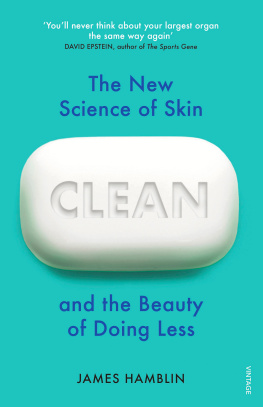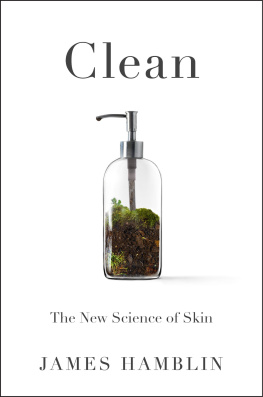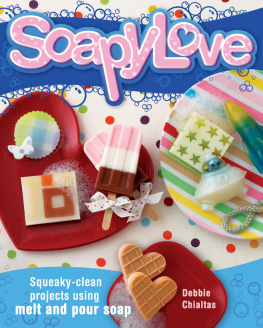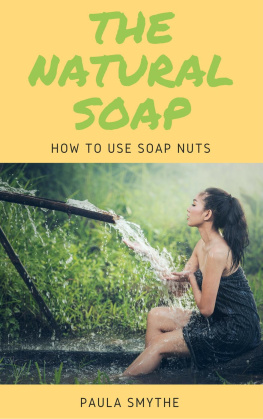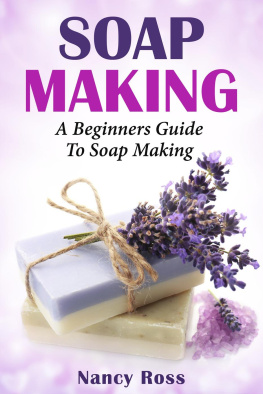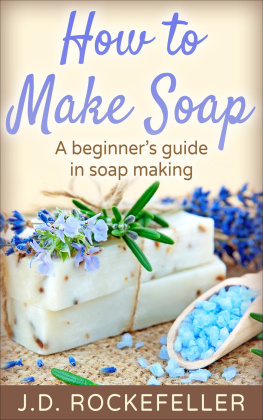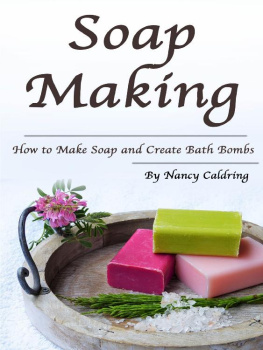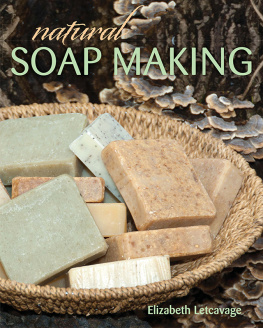ALSO BY JAMES HAMBLIN
If Our Bodies Could Talk:
A Guide to Operating and Maintaining a Human Body
James Hamblin
CLEAN
The New Science of Skin and the Beauty of Doing Less

VINTAGE
UK | USA | Canada | Ireland | Australia
New Zealand | India | South Africa
Vintage is part of the Penguin Random House group of companies whose addresses can be found at global.penguinrandomhouse.com.

First published in Vintage in 2021
First published in hardback by The Bodley Head in 2020
Copyright James Hamblin 2020
Afterword copyright James Hamblin 2021
The moral right of the author has been asserted
Cover photograph Getty Images
ISBN: 978-1-473-56214-1
This ebook is copyright material and must not be copied, reproduced, transferred, distributed, leased, licensed or publicly performed or used in any way except as specifically permitted in writing by the publishers, as allowed under the terms and conditions under which it was purchased or as strictly permitted by applicable copyright law. Any unauthorized distribution or use of this text may be a direct infringement of the authors and publishers rights and those responsible may be liable in law accordingly.
Prologue
Five years ago, I stopped showering.
At least, by most modern definitions of the word. I still get my hair wet occasionally, but I quit shampooing or conditioning, or using soap, except on my hands. I also gave up the other personal care productsexfoliants and moisturizers and deodorantsthat I had always associated with being clean.
Im not here to recommend this approach to everyone. In a lot of ways it was terrible. But it also changed my life.
Id like to say I stopped showering for some noble, virtuous reasonlike because an average American shower uses around twenty gallons of perfectly good water. That water then gets filled with petroleum-derived detergents and with soaps made from palm oil farmed on land that would otherwise still be rainforest. The body care products transported around the world in fuel-burning ships and trains contain antimicrobial preservatives and plastic microbeads that end up in our lakes and streams and make their way into our food and groundwater and back into our own bodies. Aisles upon aisles of these products are sold in pharmacies across the globe in plastic bottles that will never biodegrade, and that end up floating together like islands in the oceans. Islands that whales try, tragically, to mate with.
The last bit about the whales is not true (I hope). But the rest of these are global effects of daily bathroom habits on the scale of seven billion people that I hadnt really considered when I first stopped showering.
For me, it started simply. It wasnt even really about showering. I had just moved to New York, where everything is smaller and more expensive and more difficult. Not long before, Id left a career practicing medicine in Los Angeles to try becoming a journalist. Against the advice of pretty much everyone, I was transitioning from a profession that promised a half-million-dollar salary into a globally imploding job market. I had moved across the country and was back at the bottom of a professional ladder, in a studio apartment, with no clear path in any direction, much less forward or upward. A mentor told me not to start climbing again unless I knew my ladder was against the right wall.
He didnt mean stop showering, I dont think. But I saw this as a moment to take stock of everything in my life. In the process of this existential audit, I considered the possessions and habits that I might at least try going without. I cut back on caffeine and alcohol, disconnected my cable and internet, and sold my carlimiting anything that could be an overhead, recurring, mindless cost. I toyed with living in a van, because Instagram made it look so glamorous, but was discouraged adamantly by my girlfriend and everyone else in my life.
Even though I wasnt spending a lot of money on soap and shampoo, I did think about the net amount of time that went into using them. Behavioral economists and productivity experts will sometimes quantify the additive effects of small choices to help people break habits. For example: If you smoke a pack a day in New York, you spend almost $5,000 a year. Over the next twenty years, with expected cost increases, quitting could save you almost $200,000. If you stopped getting so much Starbucks, as I understand it, you could have a second home in Bermuda. If you spend 30 minutes per day showering and applying products, over the course of a long life100 years, for purposes of optimism and ease of mathyou will spend 18,250 hours washing. At that rate, not showering frees up more than two years of your life.
Friends and family suggested that I would have trouble enjoying the extra time because I would feel gross, unkempt. My mother worried Id get sick from some germs I failed to clean off. Maybe I would miss the basic humanity of the routines that compel us to take time for ourselves, and that give us at least some semblance of power to present ourselves as we wish the world would see us. Or Id miss the simple ritual of taking a nice warm shower and emerging each morning like a new person ready to face the day.
But what if none of this happened? What if I actually got fewer colds, and my skin looked better, and I found other, better routines and rituals? What if all those products in our bathroomsshampoos to remove oils from our hair, and conditioners to replace them; soaps to remove oils from our skin, and moisturizers to replace themwere mostly effective in getting us to buy more products? How do you really know if youve never gone more than a couple days without them?
I know what its like to not shower, goes the most common reply from skeptics, and its not good. To which I say, yes. I know what its like as a coffee-drinker to go without coffee, and its not good. I know what its like to go into a party where I know no one, and its not good. I know what its like to try to run a marathon without training, and its not good. But I also know what its like to slowly use less and less caffeine, and to come to feel at home in new social circles, and to build up to running twenty-six miles without yearning for the sweet embrace of death.
The more gradually a human body eases into these endeavors, the easier they are to do and even to enjoy. Changing daily cleaning habits could be thought of the same way. Over the course of months, and then years, as I gradually used less and less, I started to need less and lessor, at least, to believe I did. My skin slowly became less oily, and I got fewer patches of eczema. I didnt smell like pine trees or lavender, but I also didnt smell like the oniony body odor that I used to get when my armpits, used to being plastered with deodorant, suddenly went a day without it. As my girlfriend put it, I smelled like a person. Initial skepticism turned to enthusiasm.
I am under no illusions that I never smelled bad. But it happened less and less regularly. And I started to become aware of patterns. Breaking out or smelling bad usually coincided with other factors: stress, sleep deprivation, generally not thriving. Out at my familys tree farm in Wisconsin or on vacation hiking in Yellowstone, when I might go for days without indoor plumbing, I was almost guaranteed to smell and look decent. In the indolence of winter days barely moving except to get to and from the office, I felt squalid and smelled accordingly. Essentially, I became more attuned to what my body was trying to tell me. It seemed to be telling me not so much wash me as go outside, move around, be social, et cetera. (My body still sometimes trails off and says et cetera.)

